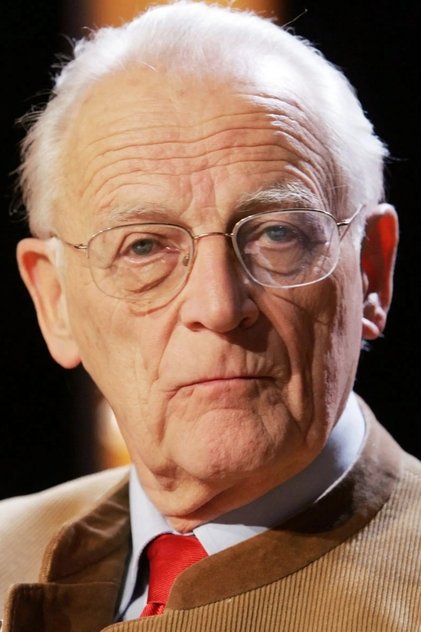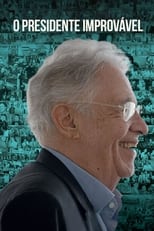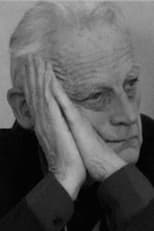

Alain Touraine
Born: August 3, 1925
Died: June 9, 2023
in Hermanville-sur-mer, Calvados, France
Died: June 9, 2023
in Hermanville-sur-mer, Calvados, France
Alain Touraine (3 August 1925 – 9 June 2023) was a French sociologist. He was research director at the École des Hautes Études en Sciences Sociales, where he founded the Centre d'étude des mouvements sociaux. Touraine was an important figure in the founding of French sociology of work after World War II and later became an internationally-renowned sociologist of social movements, particularly the May 68 student movement in France and the Solidarity trade-union movement in communist Poland.
Touraine completed his khâgne (preparatory school) at the Lycée Louis-le-Grand in Paris, and entered the École Normale Supérieure in 1945. He left his studies at the ENS for a research trip in Hungary and then worked at a mine in Valenciennes in 1947–1948 after his return to France. Touraine's work in the industrial milieu and his simultaneous discovery of the sociologist Georges Friedmann's Problèmes humains du machinisme industriel led him to return to studies in history at the ENS and to pass the agrégation in history in 1950.
The same year, he became a researcher in sociology at the CNRS, working in the new subfield of the sociology of work under Friedmann. Touraine conducted field research at the Renault auto factory in Boulogne-Billancourt in Paris, which would lead to his first sociological monograph, published in 1955. In 1952, he received a grant from the Rockefeller Foundation to study at Harvard with Talcott Parsons.
Touraine defended his two doctoral theses at the University of Paris in 1964. His major thesis was published as Sociologie de l'action in 1965, and his minor thesis as La conscience ouvrière in 1966, both by Éditions du Seuil.
Touraine was the father of two children: Marisol, who served as the French Minister of Social Affairs and Health from 2012 to 2017 in the government of Jean-Marc Ayrault and Manuel Valls; and Philippe, a professor of endocrinology at the Pitié-Salpêtrière hospital in Paris.
Touraine died in Paris on 9 June 2023, at the age of 97.
Part of the first generation of French sociologues du travail after World War II, Touraine was a pioneer of sociological fieldwork in industrial settings in France, drawing on the influence of American industrial sociology and industrial relations, as well as the survey research of Paul Lazarsfeld. Touraine's 1955 study of Renault articulated the "ABC" theory of automation which was adopted by 1960s radical sociologists of the "new working class," including Serge Mallet.
Touraine's mature work after 1960 is based on a "sociology of action", which he called "actionalism", and believes that society shapes its future through structural mechanisms and its own social struggles. Expressed in his first theoretical statement, Sociologie de l'action, Touraine conceived "actionalism" as an alternative to the functionalism of Talcott Parsons, toward which he had frequently expressed disdain throughout his career. ...
Source: Article "Alain Touraine" from Wikipedia in English, licensed under CC-BY-SA 3.0.
Touraine completed his khâgne (preparatory school) at the Lycée Louis-le-Grand in Paris, and entered the École Normale Supérieure in 1945. He left his studies at the ENS for a research trip in Hungary and then worked at a mine in Valenciennes in 1947–1948 after his return to France. Touraine's work in the industrial milieu and his simultaneous discovery of the sociologist Georges Friedmann's Problèmes humains du machinisme industriel led him to return to studies in history at the ENS and to pass the agrégation in history in 1950.
The same year, he became a researcher in sociology at the CNRS, working in the new subfield of the sociology of work under Friedmann. Touraine conducted field research at the Renault auto factory in Boulogne-Billancourt in Paris, which would lead to his first sociological monograph, published in 1955. In 1952, he received a grant from the Rockefeller Foundation to study at Harvard with Talcott Parsons.
Touraine defended his two doctoral theses at the University of Paris in 1964. His major thesis was published as Sociologie de l'action in 1965, and his minor thesis as La conscience ouvrière in 1966, both by Éditions du Seuil.
Touraine was the father of two children: Marisol, who served as the French Minister of Social Affairs and Health from 2012 to 2017 in the government of Jean-Marc Ayrault and Manuel Valls; and Philippe, a professor of endocrinology at the Pitié-Salpêtrière hospital in Paris.
Touraine died in Paris on 9 June 2023, at the age of 97.
Part of the first generation of French sociologues du travail after World War II, Touraine was a pioneer of sociological fieldwork in industrial settings in France, drawing on the influence of American industrial sociology and industrial relations, as well as the survey research of Paul Lazarsfeld. Touraine's 1955 study of Renault articulated the "ABC" theory of automation which was adopted by 1960s radical sociologists of the "new working class," including Serge Mallet.
Touraine's mature work after 1960 is based on a "sociology of action", which he called "actionalism", and believes that society shapes its future through structural mechanisms and its own social struggles. Expressed in his first theoretical statement, Sociologie de l'action, Touraine conceived "actionalism" as an alternative to the functionalism of Talcott Parsons, toward which he had frequently expressed disdain throughout his career. ...
Source: Article "Alain Touraine" from Wikipedia in English, licensed under CC-BY-SA 3.0.
Movies for Alain Touraine...



Title: Pourrons-nous vivre ensemble?
Character: Self
Released: January 1, 2006
Type: Movie
In the Paris suburbs, the ashes of the night's riots fall on the lives of young people. Games, rap, intimacy, boredom and tension resonate in the concrete. In the streets, demonstrations see groups clashing and dividing. Meanwhile, in the 6th arrondissement, the students of Fenelon high school meet between classes, kiss each other, share their fears and imagine their future. Sociologist Alain Touraine, who is old enough to be their grandfather, tries to make sense of a fractured society. He was welcomed with open arms in Latin America where his ideas still found an audience. Chronicle of a year in Paris.


Title: Apostrophes
Character: Self
Released: January 10, 1975
Type: TV
Apostrophes was a live, weekly, literary, prime-time, talk show on French television created and hosted by Bernard Pivot. It ran for fifteen years (724 episodes) from January 10, 1975, to June 22, 1990, and was one of the most watched shows on French television (around 6 million regular viewers). It was broadcast on Friday nights on the channel France 2 (which was called "Antenne 2" from 1975 to 1992). The hourlong show was devoted to books, authors and literature. The format varied between one-on-one interviews with a single author and open discussions between four or five authors.
